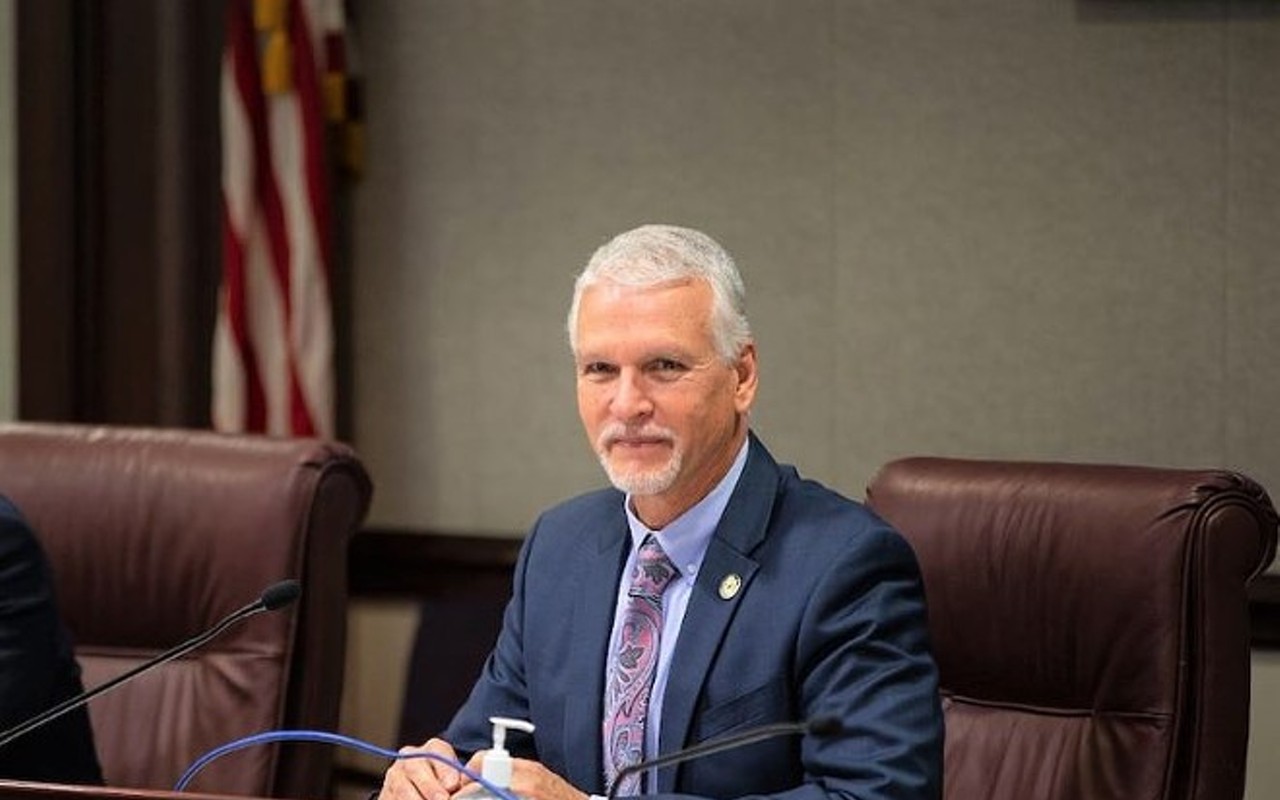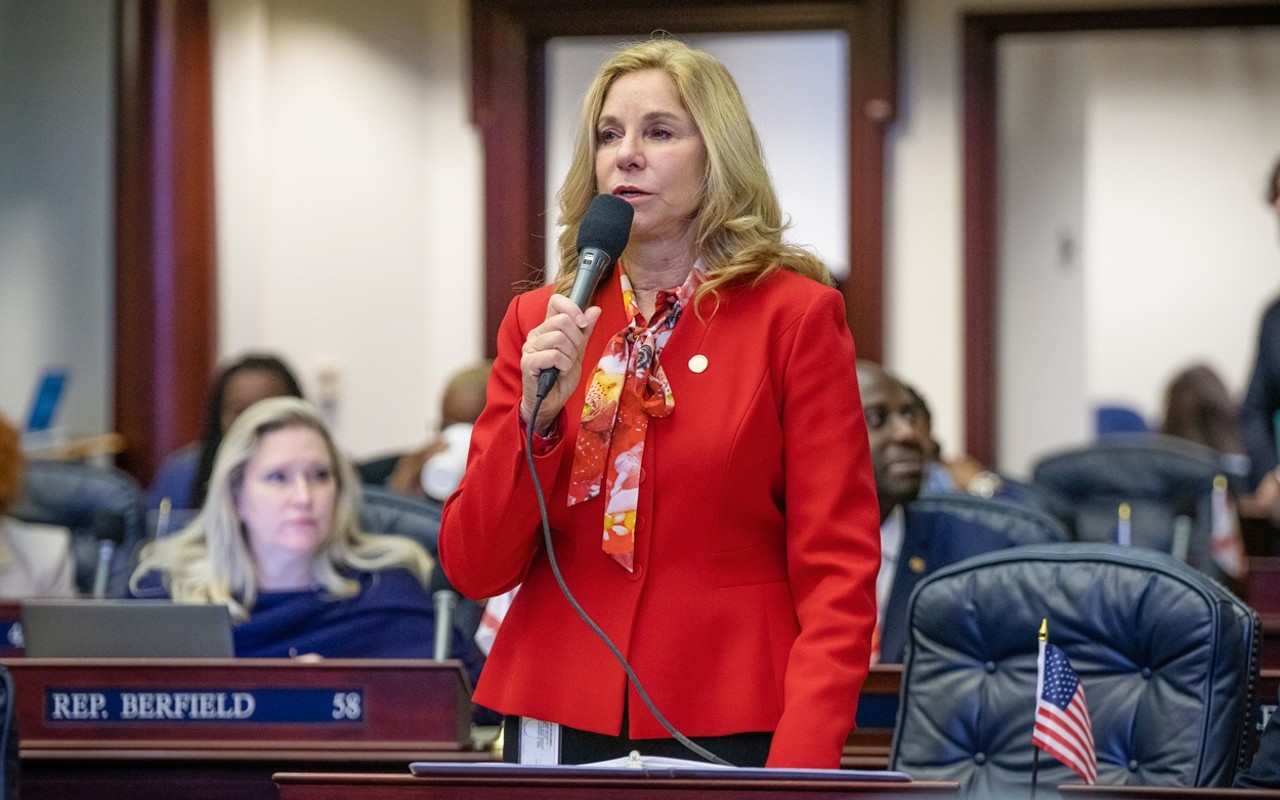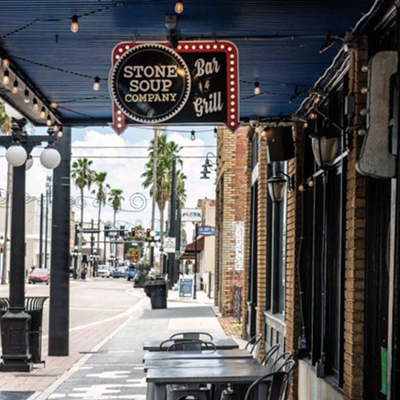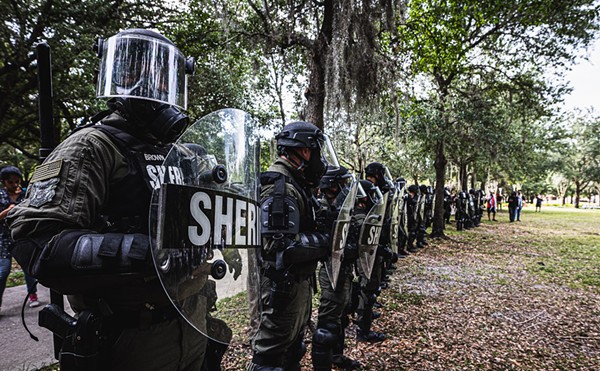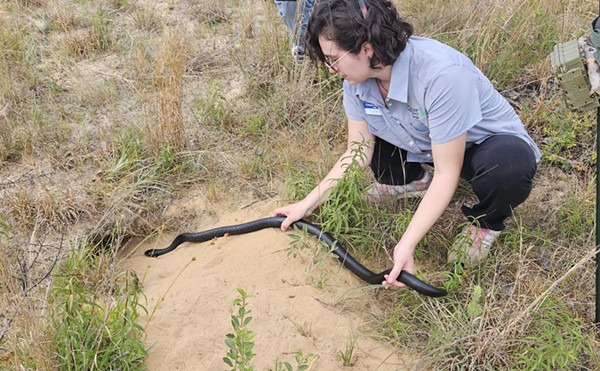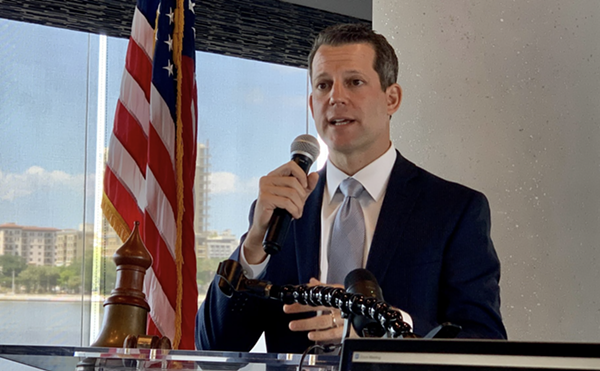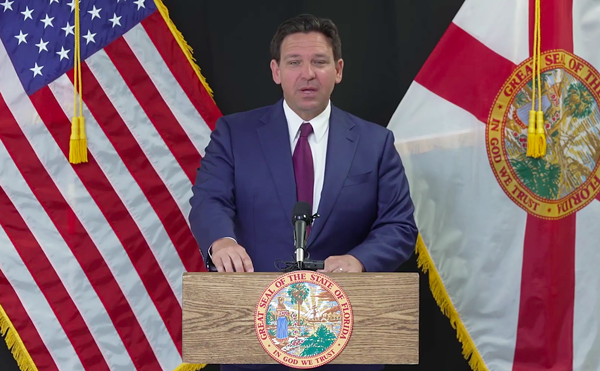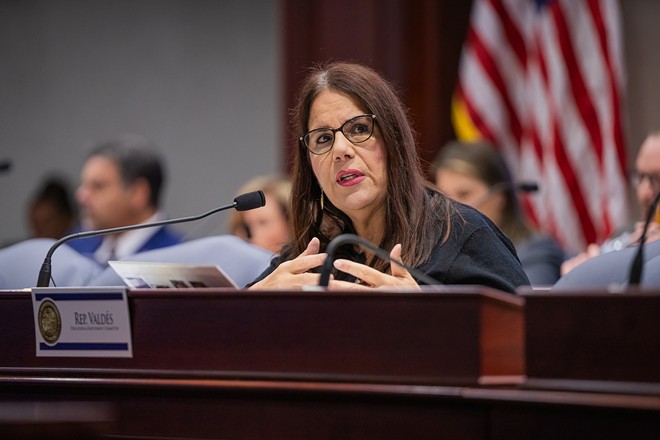
The proposal is one of more than a dozen proposed rollbacks to child labor laws introduced or passed in state legislatures over the last two years, despite reports of a stark rise in violations in Florida and across the country.
Records obtained by Orlando Weekly in November show the legislation, which broadly aims to bolster career and technical education opportunities for school-aged children, was written by lobbyists for the home builder and construction industries, who have heartily defended the bill in front of House and Senate lawmakers.
Carol Bowen, a lobbyist for the Associated Builders and Contractors who helped draft the legislation, didn't bother hiding this Thursday during a hearing of the legislation by a Florida House panel.
“I want to thank our bill sponsor,” said Bowen, in a nod to House Bill 917 sponsor Rep. John Snyder. “I told him we were going to give him an easy bill this session, and so clearly I've lied and I owe him a free year without us next year,” she joked.
Florida Democratic lawmakers are beginning to hop on board with controversial legislation that would, in part, revise Florida’s child labor law to allow minors 16 and older to do non-clerical work in residential construction that is currently deemed too dangerous for minors.
The proposal is one of more than a dozen proposed rollbacks to child labor laws introduced or passed in state legislatures over the last two years, despite reports of a stark rise in violations in Florida and across the country.
Records obtained by Orlando Weekly in November show the legislation, which broadly aims to bolster career and technical education opportunities for school-aged children, was written by lobbyists for the home builder and construction industries, who have heartily defended the bill in front of House and Senate lawmakers.
Carol Bowen, a lobbyist for the Associated Builders and Contractors who helped draft the legislation, didn't bother hiding this Thursday during a hearing of the legislation by a Florida House panel.
“I want to thank our bill sponsor,” said Bowen, in a nod to House Bill 917 sponsor Rep. John Snyder. “I told him we were going to give him an easy bill this session, and so clearly I've lied and I owe him a free year without us next year,” she joked.
Three of her Democratic colleagues on the House Choice & Innovation committee, however, voted in favor of advancing the measure, joining 13 Republicans. One other Democrat, Rep. Kevin Chambliss, voted against it.
The proposed revision to child labor law is curiously tucked into legislation (SB 460/HB 917) that broadly aims to bolster student learner programs and recruitment opportunities for the trades in schools.
Just a small section actually seeks to revise Florida's child labor law, which already allows students who are enrolled in government-approved student programs to work on job sites that are otherwise deemed too hazardous.
The state Department of Education's Career and Technical education programs offer Florida students the opportunity to gain hands-on experience in the trades, develop skills, and even obtain industry certification ahead of graduation. This can be useful for students who can’t, or don’t wish to, pursue further education through a college or university.
Industry groups, like the Florida Home Builders Association and Associated Builders and Contractors, that are lobbying for the legislation, however, say these Career and Technical Education (CTE) programs aren’t equally spread across Florida. This means not every student has access.
Ashton Mears, a lobbyist for the Florida Home Builders and former CTE teacher, said as of the 2020-2021 school year, 29 counties in Florida either did not offer in a class for construction, or only offered one.
“This bill does not mandate you to work in construction, but gives you an opportunity to gain experience in a rewarding and a rewarding career,” Mears said.
Unlike children enrolled in a school program, however, young workers can legally be hired and paid sub-minimum wages to start, and are less likely to speak up on the job if their boss doesn’t follow all of the rules, or fails to pay them all of what they’re lawfully owed. This kind of behavior—wage theft—is common in the construction industry (just ask Florida Sen. Keith Perry, whose own roofing company has been cited for violating overtime requirements).
Enforcement experts say the state already fails to protect children under current law as it is. Florida only has seven employees dedicated to enforcing child labor law across thousands of job sites. The U.S. Department of Labor’s Wage and Hour Division, which enforces federal child labor standards, similarly has just a few dozen investigators to go around.
According to the New York Times, construction has become one of the most common industries in which children crossing the U.S. border seeking work to support their families have been illegally hired for under-the-table jobs. Some of these children, employed on roofing and construction sites in Florida, have suffered injuries. At least a couple of these children have died on the job.
“It's kind of this illusion that if we have the laws on the books, people are going to follow them,” David Weil, the former head of the Wage and Hour division during the Obama administration, previously told Orlando Weekly. “People just don't worry about having an investigator showing up because there are so few of them to go around.”
The House and Senate bills’ Republican sponsors have watered down their legislation in recent weeks, specifically to address some of the safety concerns voiced by critics.
Sen. Corey Simon, a first-term senator elected in 2022, amended his bill to only allow for older teens to work on residential construction, not commercial sites, and clarified that teens 16 and older would not be permitted to work on scaffolding, ladders, or roofs above six feet off the ground. Rep. Snyder similarly amended his bill—which didn’t go as far as Simon’s to begin with—to align with the Senate version.
Still, opponents argue the legislation could still conflict with federal standards under the Fair Labor Standards Act, which prohibits allowing minors to work “on or about roofs.”
“Putting kids on roofs is now off the table,” Alexis Tsoukalas, a policy analyst for the Florida Policy Institute, acknowledged during Thursday’s panel hearing. “The problem is, it still doesn't roll out youth working near roofs or in roofing operations, and that can happen on the ground.”"...it still doesn't roll out youth working near roofs or in roofing operations, and that can happen on the ground.”
tweet this
She offered the example of a minor working as a materials handler, preparing hot tar. “You don't have to be on the roof, but it's still dangerous and it’s still prohibited by the federal Fair Labor Standards Act.”
Both Senate and House bills contain certain safeguards: Older teens must obtain certification through a 10-hour OSHA training program to work in construction, and must also work under the supervision of an adult aged 21 or older with at least two years of work experience and the same OSHA certification.
Opponents from Florida’s organized labor standpoint argue this is still insufficient. “These are very dangerous jobs,” Brian Nathan, a member of the International Brotherhood of Electrical Workers union, told House lawmakers. The OSHA-10 certification, Nathan pointed out, is “basic” stuff.
“Sixty dollars, two days, and I can have everyone in this room qualified,” he said.
Moreover, data from the federal Bureau of Labor Statistics shows there is only one direct supervisor in Florida available for every seven construction and extraction workers. Even Rep. Snyder, the bill sponsor, acknowledged there's no guarantee that children on these sites would be supervised at all times.
“There’s nothing in the language that says they have to have constant eyesight on them at all times,” he admitted, while maintaining that it would nonetheless be in the employer’s best interest to ensure the safety of their employees.
Other Republican lawmakers, meanwhile, have at best, gaslighted critics. At worst, they have pointed to darker points in history, where children were shipped off to war, to dismiss voiced concerns about children’s safety.
“To think that 70 years ago, we had 17-year-olds storming beaches in Normandy, but here today they can't climb a six foot ladder,” said Rep. Spencer Roach, R-North Fort Myers, disbelievingly. “I think those concerns are wildly overblown.”
Children, he added, are already well within their legal rights to climb on tall structures on playgrounds, like monkey-bars. “Maybe we need to pass some laws to protect these kids in those circumstances,” he quipped.
Rep. Nixon, the mother of a 16-year-old child, pointed out that children on playgrounds aren’t working for a wage. “It’s apples to oranges,” she said. “They don't have metrics and deliverables and quotas that they have to meet in a timely manner.”
Like the House version, Senate Bill 460 has also received a vote of support from a Democrat. Sen. Rosalind Osgood, D-Tamarac, joined Republicans last week in voting up the bill and in downplaying the potential dangers of minors employed in construction work.
“There are many students working in McDonald’s,” Osgood said. “And being a former manager at McDonald's for 12 years, I can tell you that it's very dangerous with the equipment and the things that you have to do.”
McDonald’s, however, isn’t exactly a gleaming example of what it looks like to follow child labor law. The Washington Post recently reported that the fast food industry has been fueling a surge in child labor violations. McDonald’s franchise locations, in particular, have been one of the worst offenders, averaging 15 violations per 100 stores since 2020, the Post found.
Separate legislation filed in the Florida House (HB 49) and Senate (SB 1596), backed by the restaurant and tourism industries, would extend the number of hours older teens are allowed to work—permitting them to work more than 30 hours a week during the school year.
That legislation, drafted by the right-wing Foundation for Government Accountability, is similarly gaining momentum in the state legislature. While the Senate version has yet to receive a hearing, the House version has cleared three committees and is headed to the House floor next week. Legislation must be approved by both chambers and Florida Gov. Ron DeSantis to become law.
This post first appeared at our sibling publication, Orlando Weekly.
Subscribe to Creative Loafing newsletters.
Follow us: Apple News | Google News | NewsBreak | Reddit | Instagram | Facebook | Twitter | Or sign up for our RSS Feed

